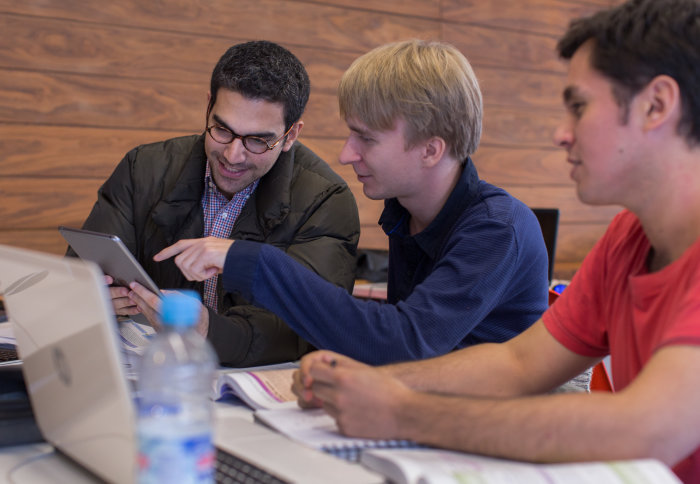Assistive technology support for Imperial community

Imperial staff and students can now get extra help to make work and study as easy as possible with the introduction of new College wide technology.
The assistive technology (AT) includes all forms of devices and software which promote greater independence for staff and students - enabling them to perform tasks that they otherwise might have difficulty with.
Fully accessible
The software is all designed to help make work and study as easy and enriching as possible. The full range of support on offer can be explored here.
Some software is available to download via the Software Hub and others are freely available online or via app stores. A range of training workshops are available for students in the coming weeks.
The software is available to all students international or home; disabled or non-disabled.
While some of the software will be particularly useful for UK students with dyslexia it may also benefit students who speak English as a second language.
Director of Student Services, Hannah Bannister, said: “With this project the College has significantly increased the range of software available to staff and students. We couldn't haven achieved such a comprehensive improvement without the insight of a number of groups across the College, such as the Disability Advisory Service.
"The College's Learning and Teaching Strategy and the Equality, Diversity and Inclusion Strategy both set out our vision for creating a welcoming and diverse community. Investment in innovations such as assistive technology demonstrates our commitment to deliver this.”
Delivering the project
Professor Sara Rankin, of the National Lung and Heart Institute, was a member of the working group that delivered the project. Professor Rankin is herself dyslexic and earlier this year was part of a team that successfully bid for funding from the Excellence Fund for Learning and Teaching Innovation to deliver inclusive teaching for Imperial students with Specific Learning Difficulties.
Professor Rankin said: “Part of this project is about ensuring that students with specific learning differences, such as dyslexia, are supported with good assistive technologies. Myself and David Mooney were therefore recruited to review the new technologies that the College is investing in.
“I believe that students with learning differences have the potential to be great scientists. Dyslexic people are known to have strengths in creativity, thinking outside the box and problem solving as well as having great verbal communication skills and be able to see the big picture, all these attributes mean they have the potential to be great scientists.
"This technology will help increase their chances of success by supporting them in areas where they have a weakness (such as spelling and reading) and allowing them to show their full potential.”
Article text (excluding photos or graphics) © Imperial College London.
Photos and graphics subject to third party copyright used with permission or © Imperial College London.
Reporter
Murray MacKay
Communications Division
